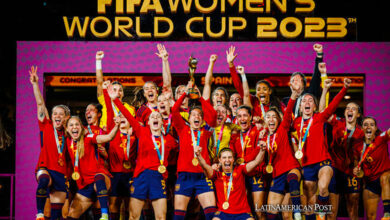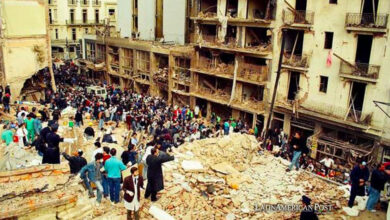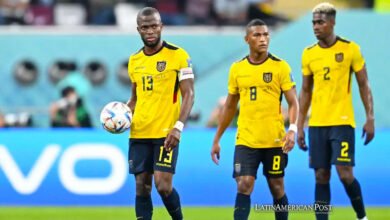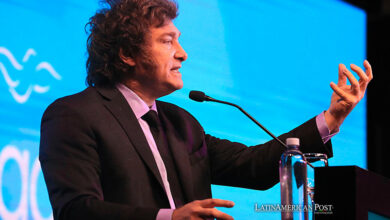Argentinean Messi’s No-Show Sparks Outrage at Hong Kong Friendly Amid Refund Chants
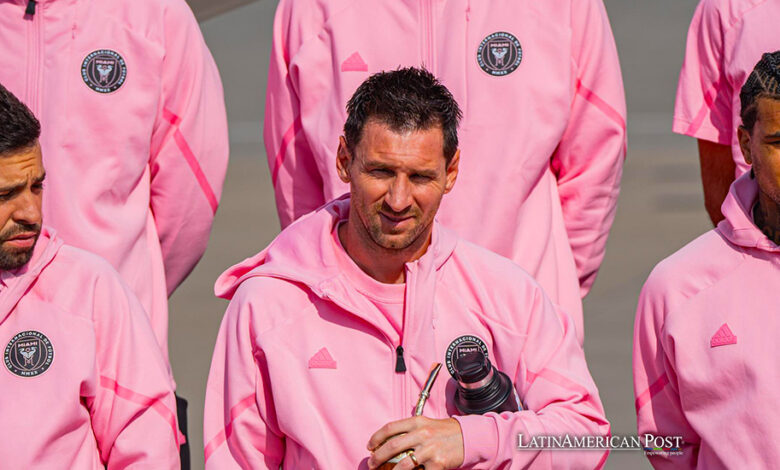
A pre-season friendly in Hong Kong turned sour as Inter Miami faced the wrath of fans over Argentinean Lionel Messi’s benching due to injury, igniting calls for refunds and overshadowing the event with controversy.
Messi’s Absence Sparks Fan Disillusionment
In what was anticipated to be a showcase of footballing brilliance, a pre-season friendly in Hong Kong became a stage for fan disillusionment and administrative apologies. The center of the uproar was none other than Lionel Messi, the Argentine icon whose absence from the pitch led to a cascade of boos and chants for refunds from a near-capacity crowd of 38,323 at Hong Kong Stadium.
The event, which saw Inter Miami clinch a 4-1 victory over a local League XI, was marred by the disappointment of fans who had paid upwards of 1,000 Hong Kong dollars (£101) for tickets, expecting to witness the magic of the 36-year-old World Cup winner. Despite Messi’s presence in Hong Kong and his celebrated move to Inter Miami last July, a hamstring injury relegated him to the sidelines, sparking widespread discontent among attendees.
The situation was further exacerbated when David Beckham, co-owner of Inter Miami and a football legend in his own right, attempted to address the crowd. His speech, intended to express gratitude for the fans’ support, was drowned out by a chorus of jeers, underscoring the fans’ frustration.
Hong Kong’s Secretary for Culture, Sports and Tourism, Kevin Yeung, voiced the government’s and fans’ disappointment, revealing that officials had been assured of Messi’s participation until the eleventh hour. The government had been led to believe that Messi was contracted to play at least 45 minutes of the match—a commitment that ultimately went unfulfilled due to the player’s abductor injury.
In response to the unforeseen turn of events, the Hong Kong government, which had supported the match through a 16 million Hong Kong dollars government grant to the organizers, Tatler Asia, found itself in an awkward position. Tatler Asia, recognizing the fallout from Messi’s absence, announced its decision to withdraw its application for the grant, which, while responsible, did little to quell the immediate dissatisfaction among fans.
The Challenges of Sporting Event Organization
The controversy sheds light on the challenges of organizing high-profile sporting events, where the promise of star attraction meets the unpredictable nature of sports injuries. The organizers’ admission that neither Messi nor his teammate Luis Suarez, who was also sidelined due to a knee injury, could participate due to medical advice points to a gap in communication that left thousands feeling cheated out of the experience they had paid for.
Gerardo Martino, Inter Miami’s manager, expressed understanding of the fans’ disappointment and apologized on behalf of the team. He emphasized that the decision to bench Messi and Suarez was made in consultation with the medical staff, prioritizing the players’ health over the spectacle.
Broader Implications and Lessons Learned
The incident in Hong Kong is a stark reminder of the delicate balance between commercial interests and the genuine passions that drive sports fans worldwide. As the dust settles on this contentious friendly, the broader implications for the relationship between sports organizations, government bodies, and fans emerge. Transparency, communication, and a shared commitment to the sport’s integrity and its players’ welfare emerge as crucial elements in navigating the complex terrain of international sports events.
For the fans in Hong Kong, the disappointment of not seeing Messi in action is a bitter pill to swallow, one that will likely prompt reflection on the nature of their engagement with the global sport. Meanwhile, for the organizers and government officials involved, the episode serves as a cautionary tale about managing expectations and the inherent risks of tying an event’s success so closely to individual athletes’ participation.
Also read: Peru’s Cultural Ministry Demands Action Against Racism in Soccer Match
As the controversy fades and the conversations around it evolve, the hope is that lessons will be learned. Future events will be approached with a greater awareness of the needs and expectations of all stakeholders involved. While a moment of acute frustration for many, the Messi no-show ultimately underscores fans’ deep love and dedication for football. This sentiment remains unshaken despite the day’s disappointments.

